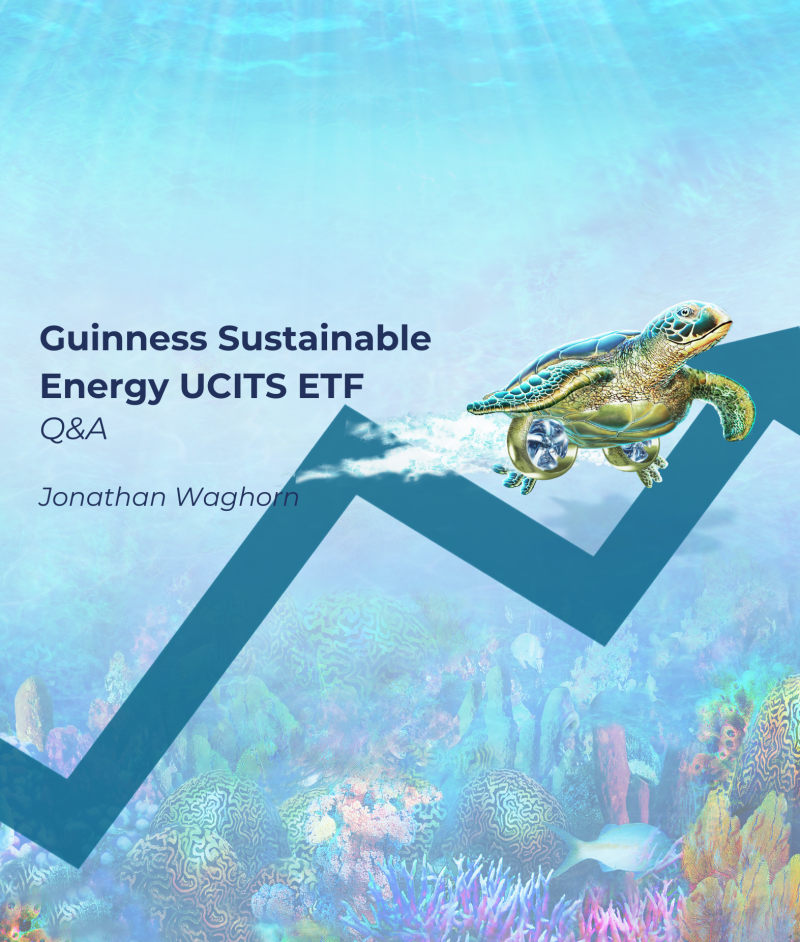Jonathan WaghornYou’ve been managing the Guinness Sustainable Energy Fund since 2018, why should investors consider investing in the energy transition?Guinness believed that over the next 20 years the sustainable energy sector will benefit from the combined effects of firstly; demand growth, the electrification of transportation, improved energy storage economics, both bringing attractive long term sustainable energy demand growth.
Secondly improving economics. Sustainable energy sources have become cost competitive with power from fossil fuels, and we expect the cost of supply to continue to fall.<
And lastly, both public and private supports of governments and companies pursuing sustainable energy in order to achieve mandated carbon targets or to improve public perception.
Why did you launch an active ETF?Guinness are committed to expanding the range of strategies into different vehicle types to meet specific client needs. This active ETF launch means we can offer a great way for investors to access a skilled, active manager like ourselves while benefiting from the product cost, liquidity and transparency advantages.
How will this affect the existing funds and their management?The launch of the ETF will not impact the existing vehicles and all three vehicles our Irish vehicle, our UK mutual fund and the ETF will be separate entities run in parallel by the existing managers myself and Will Riley. There'll be no significant impacts on our workload and we want investors to be able to choose a vehicle that works best for them.
Are you comparing performance to an index considering ETFs track an index?Not all ETF's have to track an index. The historical index for this ETF was the iClima Global Decarbonisation Index. But the Guinness Sustainable Energy UCITS ETF is actively managed and it will use the MSCI World Index, it's benchmark for performance comparison purposes. The ETF like the fund will not be managed to the benchmark and it may invest in securities not included in the benchmark, so therefore investment returns may deviate materially from the performance of the benchmark.
And the ETF is monitored but is not constrained in reference to the benchmark and accordingly the benchmark is not relevant for the purposes of the ETF sustainability objective.
Is the portfolio exactly the same as the Guinness Sustainable Energy Fund?Yes, the holdings will be the same and the weightings will be very close. The portfolio will be rebalanced in a manner that keeps it close to the sustainable Energy Fund in terms of the percentage weight of holdings. And the ETF is an outcome of the same investment process. That we use for the Sustainable Energy Fund.
Will the ETF affect the liquidity of the OEIC/UCITS funds?At its current size, no. And we would look at liquidity at the strategy level to monitor this becoming an issue in the future.



